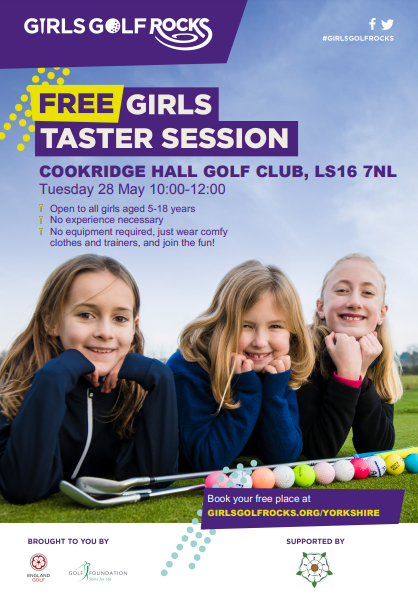Moving on to secondary School: A road safety guide for parents and carers
Safer Roads Leeds have produced this useful guide to support Year 6 children and their parents/carers with their new journey to secondary school.
For many children, starting secondary school is the time when they experience travelling independently for the first time. You and your child should know when they have the skills and are ready to travel independently and safely, and it is a good idea to start to think about your child’s new journey with them well beforehand.
- Talk to them about how their feel about their new journey.
- If possible, do the journey with them before term starts.
- Is there a safer, quieter, more pleasant option?
- Think about potential hazards.
- Make sure they’ve got a list of family and friends’ telephone numbers in case of emergency.
- Keep a list of the names and numbers of your child’s friends.
Your child will travel to and from school around 400 times each year; the start of secondary school is the perfect time for your child to establish safe and sustainable travel habits that will stay with them for the rest of their life!
Part 1 Planning to walk
Walking to school is a brilliant to way for your child easily to get some exercise, develop independence and clear their head ready to concentrate. Once they start secondary school, your child is likely to be walking alone or with friends, and so they need some extra help to make sure they’ve got the skills to do so safely – especially if they’ve been driven or escorted to primary school.
Here’s how you can help:
- Plan a safe route with your child. Google maps is a great tool – you can drag the little ‘peg kid’ to explore at street level and find safe crossings.
- Will you pass the cymbal challenge? Watch the three short (and fun!) films about road safety that local schools made for transition students. Search ‘You Look… but do you see? Leeds City Council’ on YouTube. There’s an
audio challenge too. Use these to find out more about what your child knows (or not) about phones and roads. - What else do they think might help keep them safer? Discuss things such as thinking for themselves, choosing safe places to cross and not messing about near busy roads.
- Children who are late often take more risks – help your child get into the habit of getting their things ready the night before and leaving plenty of time to walk to school.
- Is there a roundabout or junction on the route? It isn’t always easy to know where cars will come from; make sure your child understands how cross safely. The same goes for crossing between parked cars. This extract from the highway code covers these and other important reminders
for pedestrians of all ages.
Remember, it only takes 15 – 20 minutes to walk a mile, and your child will enjoy all kinds of short-term and long-term benefits from walking to school.
Part 2 Planning to use public transport
Your child may not be used to travelling by public transport on their own, so there are a lot of things to consider. Even if they are, the journey to secondary school is likely to be a new one. Here’s how you can help:
- Find out whether your child knows how to find out about buses, how to hail and stop the bus safely, and how to wait until the bus has moved on before crossing the road. Could you practice this together?
- Discuss what they think it means to behave safely / dangerously on public transport.
- Children who are late take risks – help your child get into the habit of getting their things ready the night before (Travel pass? Money?) and leaving plenty of time to get to school.
- Go through some ‘what if’ scenarios. What if the bus is late? What could they do if friends are messing about on the bus? What if they leave something on the bus?
- Use Google maps too; you can drag the little ‘peg kid’ to see what the roads look like where the bus stops. If your child needs to cross the road, remind them to move to a safer crossing place (zebra, pelican etc.) or wait until the bus has moved on, and then find somewhere where they can see clearly.
If it’s too far for your child to walk or cycle to school, using public transport is a great next option.
Part 3 Planning to cycle
If your child is lucky enough for cycling to be an option, your support and encouragement are vital. Here’s how you can help.
- Make sure your child can cycle well enough for the road. Find out more from Cycle North.
- Look at Google Maps to find a local off-road route or quieter streets. The West Yorkshire Cycle map includes a journey planning tool and also highlights recommended routes across the city.
- Cycle the route together if you can.
- If your child’s route to school can’t avoid junctions or roundabouts, they can always get off and walk.
- Check that your child knows how to do a basic check to make sure their bike is in good working order; do the brakes work properly? Are the tyres pumped up? Does the bell work? It might be a good idea to have the bike checked in a proper bike shop every so often. Here’s a great video to show you and your child how to do a basic ‘M-check’ to make sure their bike is safe to ride. Help your child organise the right kit: helmet, fluorescent and reflective clothing, and a set of lights for winter.
Cycling isn’t just good for getting to school; your child may soon realise how easy it is to get about to all kinds of places by bike – they can even take their bike on some trains (link to info?)
Part 4 Planning to travel by car
Drivers have a huge part to play, particularly at a time when children may be unescorted for the first time, and perhaps be distracted by new phones, new friends, new routes, new timetables and new experiences – and all this when their brains still can’t accurately judge speed. Here’s how you can help:
- Inconsiderate school-gate parking generates the greatest number of school-transport related complaints we receive and creates danger for everyone.
- Crossing between parked cars is one of the biggest causes of child pedestrian casualties; talk to your child about how to do this safely if they must; better still, make sure you don’t create these conditions yourself.
- Remind your child about the importance of wearing seatbelts, whether you are with them or not. Most schools in Leeds now have 20mph speed limits, to help keep children safer.
- Could you consider car-sharing?
- Or perhaps drop your child off a bit further away, so that they, too, can reap the many benefits of walking part of the way? You could even drop them at a friend’s house or central meeting point so they can walk in together.
- Make sure your child knows how to get of the car and cross roads safely. They should always get out on the pavement side, not into the road.
So if your child has no other option but to travel by car, there’s a lot those who drive them can do to help keep everyone safe.
Cooking Halloumi Tikka Masala
As Year 6 will be moving into secondary school soon, they’ll be becoming more and more independent. To help with this, we’ll be cooking this term, practising a number of essential skills: bridge method, claw method, grating, mixing, frying, using the oven and food hygiene.
This week, half of the class made halloumi tikka masala and all of them thought it was delicious! Have a go at home too – we’ve sent the recipe home.
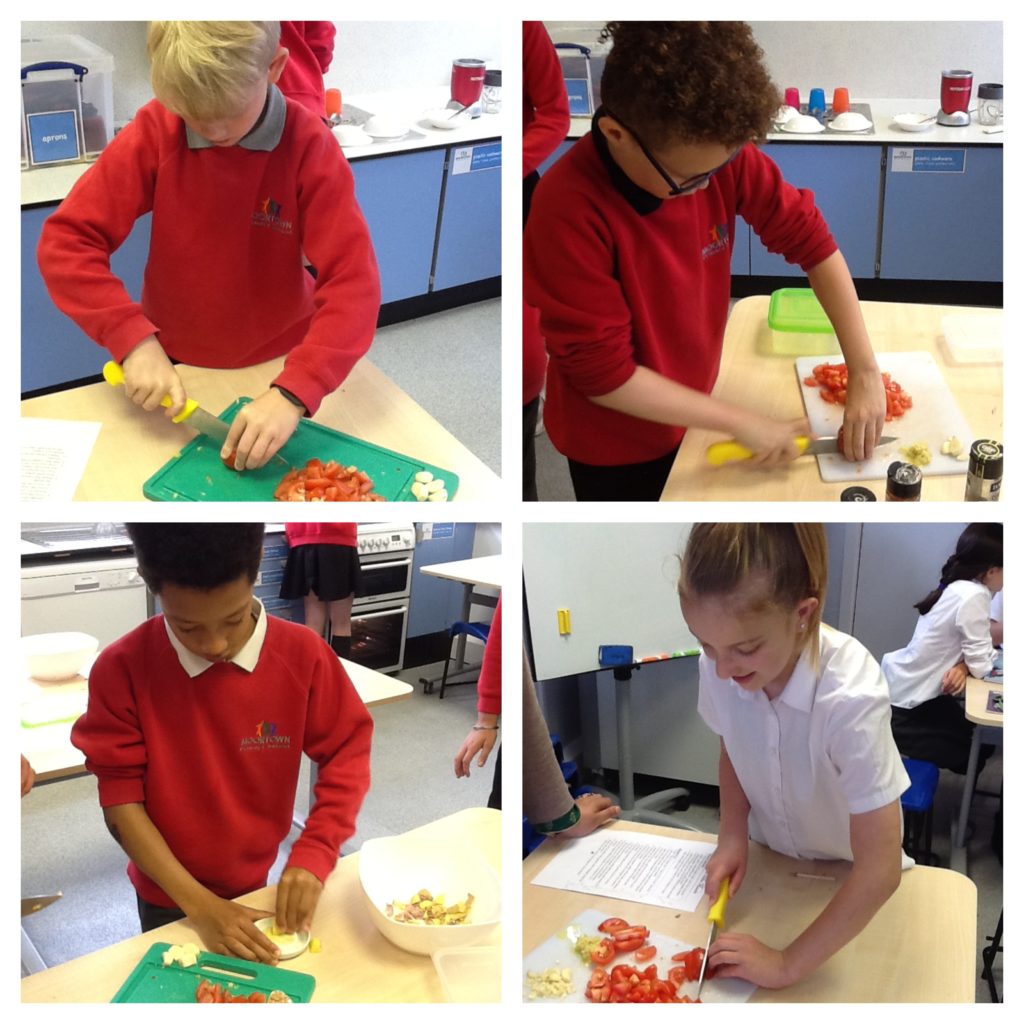
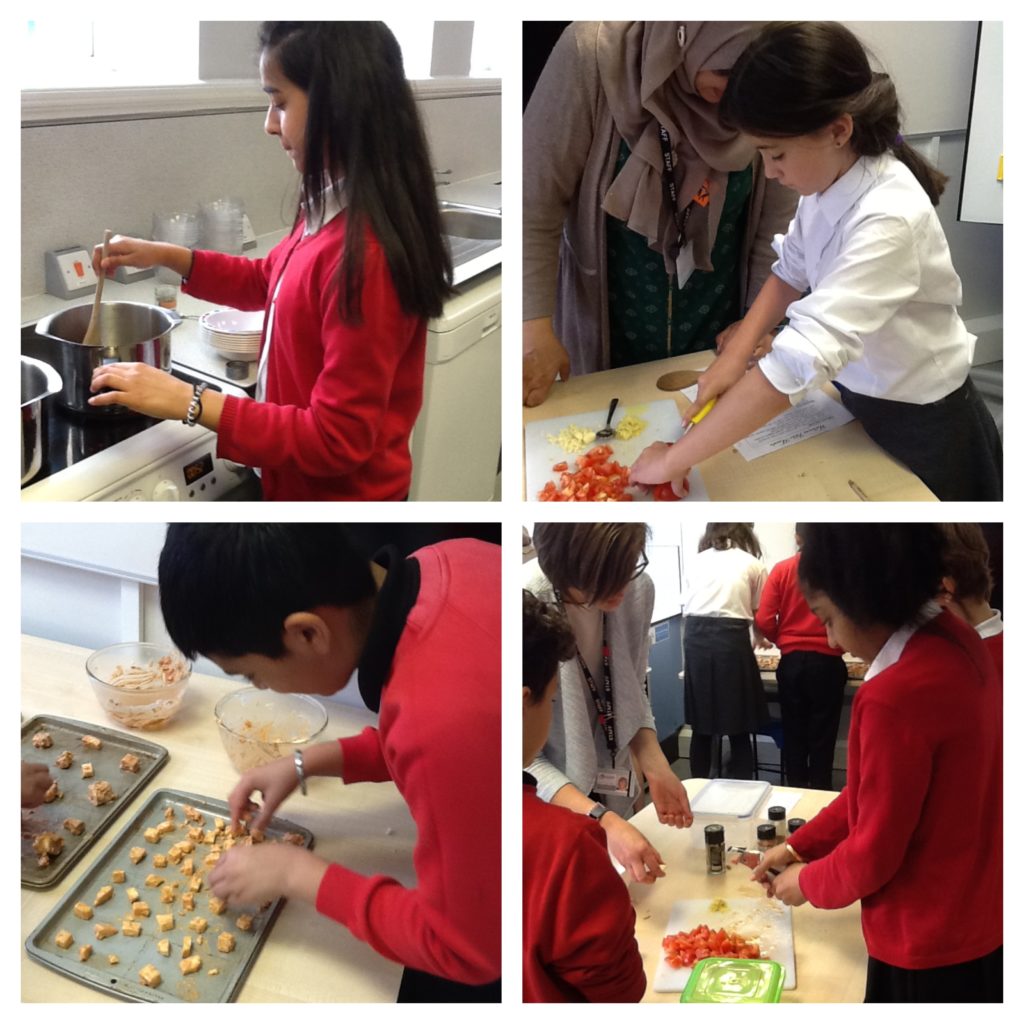
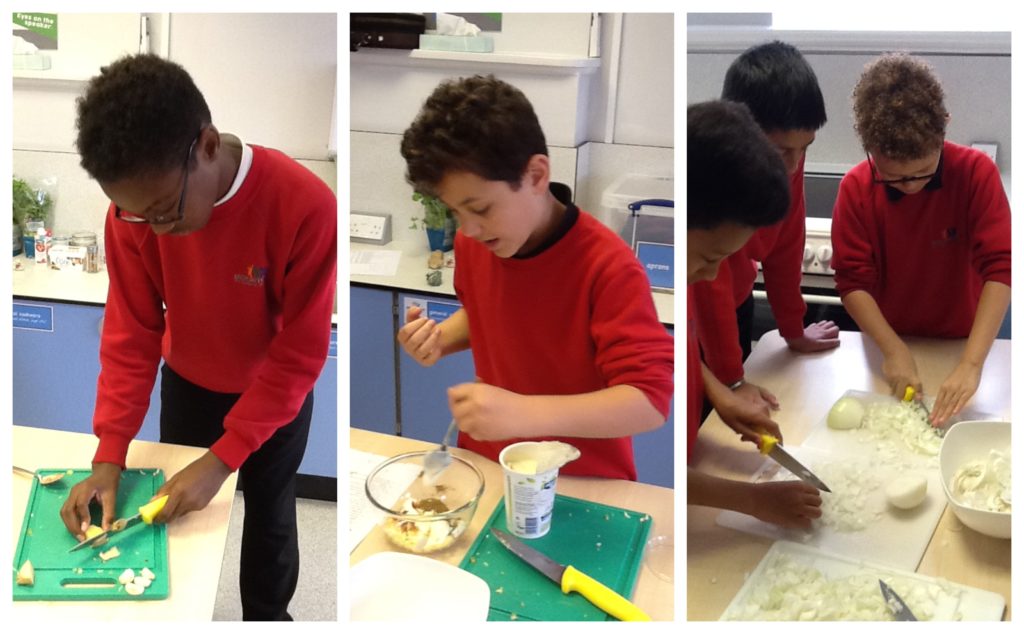
I can show a moral choice.
This week’s homework was Creative and we explored what a moral choice is. We had a great range of examples: choosing to tell the truth; paying people according to the ‘worth’ of their job; standing up to bullies; choices politicians have made; and many more.
Here are some the class nominated to be shown on our website:
Ethan created a comic strip about standing up to your friends making bad choices.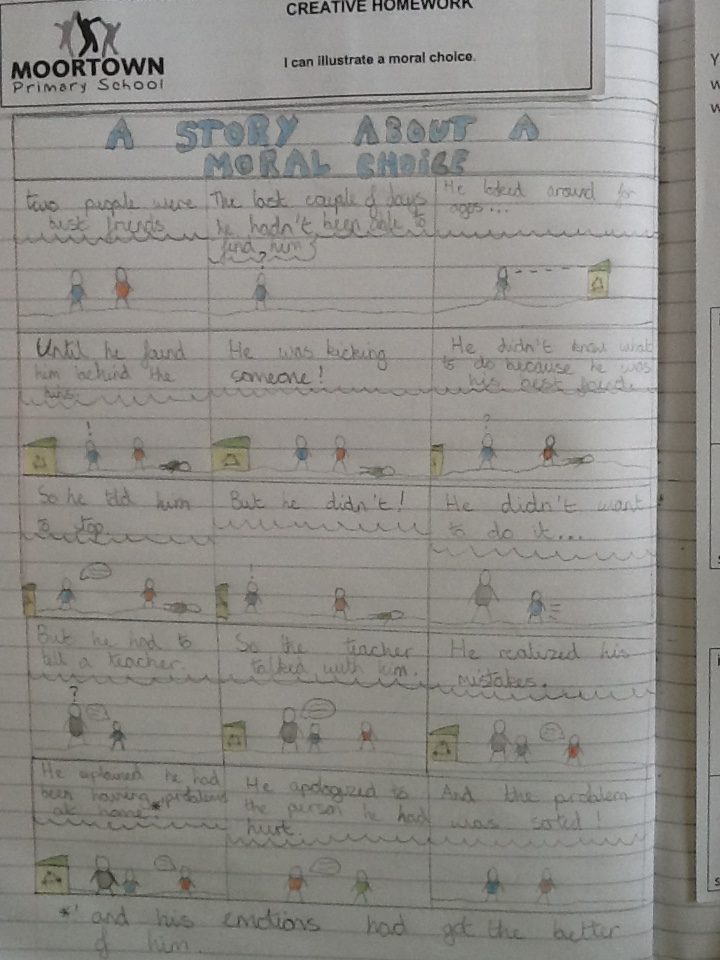
Isaac’s story was about the consequences of lying.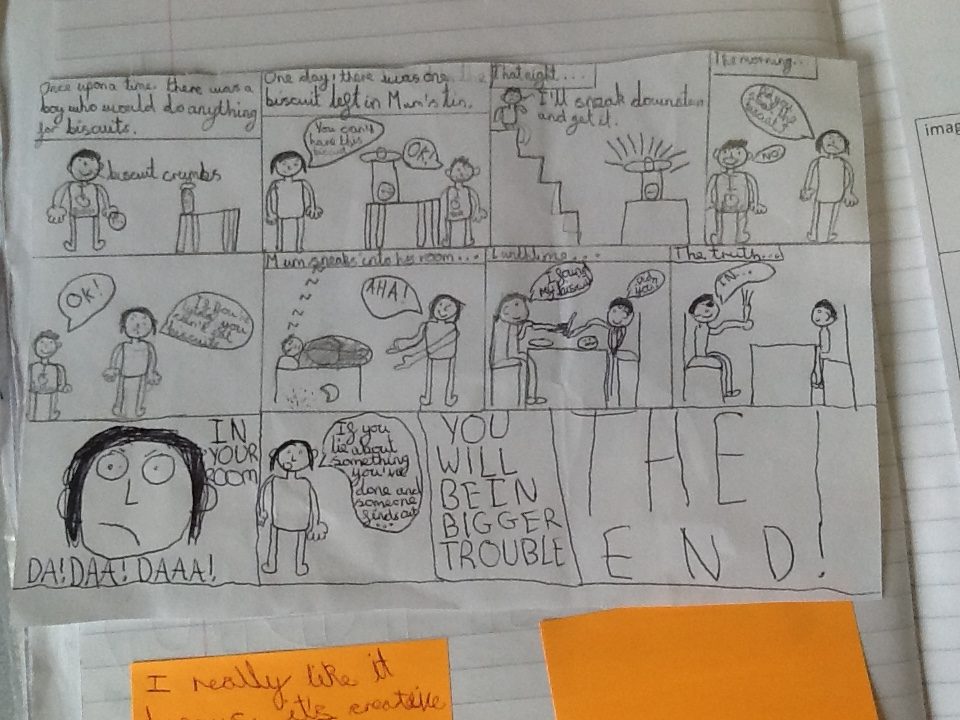
Isabella explored choices that are made which result in gender inequality.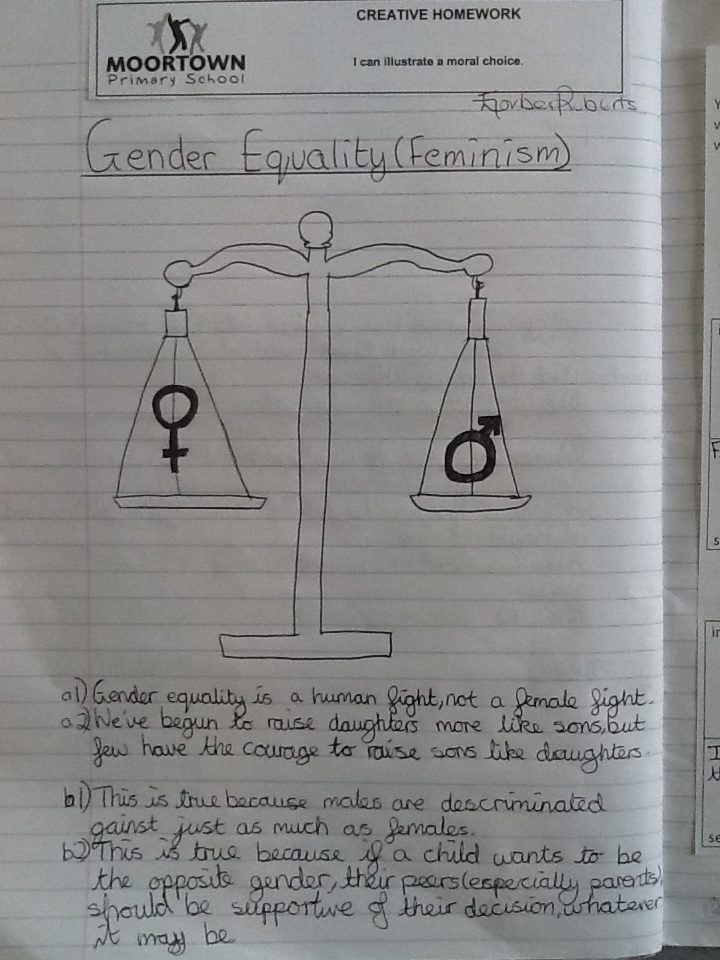
Ripley explored the difference in wages and whether they had been allocated morally.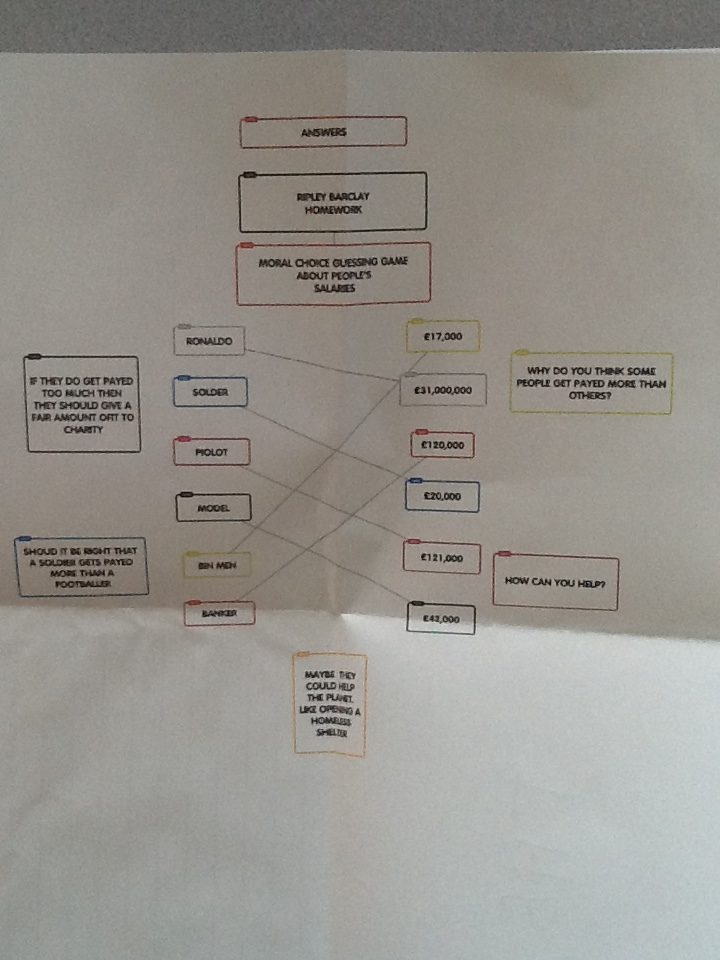
Amrit thought about choices Barak Obama made in his career as President.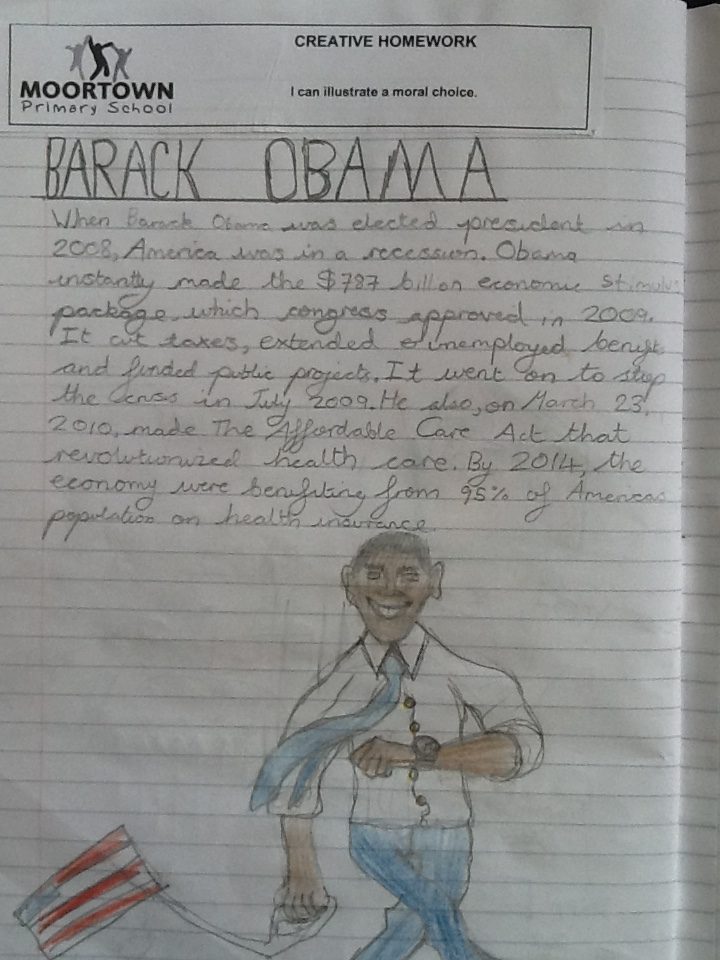
Skipping day
One of the ways we have invested our PE and Sport Premium, over the last two years, is our partnership with Skipping School. This has supported children to learn new skipping techniques.
With skipping equipment available for pupils to use at playtime and lunchtime, this is one of the ways they can achieve their active 30 minutes in school every day.
Year 2 and Year 4 have taken part in skipping festivals this year and Jodi, from Skipping School, will be working with our remaining classes on Wednesday 19 June.
There will be a whole school skipping assembly at the end of the day and if the weather is dry, this will be held in the playground and parents and carers are invited to come and watch the skipping skills on show.
Please note that if the weather is wet, the assembly will need to be indoors and, due to space restrictions, we will not be able to accommodate parents and carers in the hall as well as the skippers.
After the skipping assembly, skipping ropes will be available for sale at a subsidised price of £2 rather than £5 from outside the Year 2 classroom.

Living and Learning: Relationships education
Thank you to those parents and carers who attended the recent relationships education information sessions.
‘Very helpful to understand what information will be taught at each level and the terminology so we can use the same language at home.’
‘Lots of helpful information to help support learning.’
‘Pleased to have a clearer sense of what will be covered and how.’
‘Very helpful to understand what is covered and what vocabulary the children will be learning to be able to reinforce it at home.’
These sessions were aimed at making parents and carers more aware of some of the following aspects of our curriculum.
- What is our Living and Learning curriculum?
- What does relationships education currently look like throughout school?
- What is included in our Relationships and Sex Education policy?
Relationships education forms part of our Living and Learning for this half term and if you were unable to attend the session, our progression of learning (pg10) and the terminology (pg6) that may be used as part of this learning can be found in our RSE policy.
Let us entertain you!
Today, the whole school were invited to watch some of our talented musicians in action. Year 4 showcased their skills on the ukulele. Having learnt a few simple chords and some basic strumming patterns, the children confidently played some popular tunes for us to enjoy. 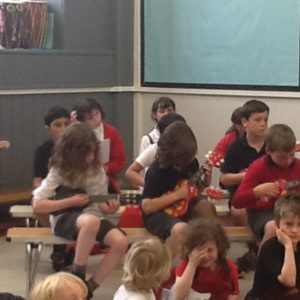
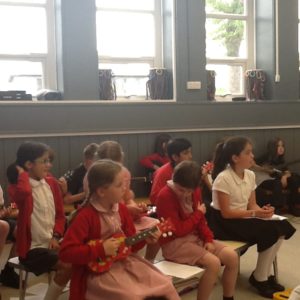
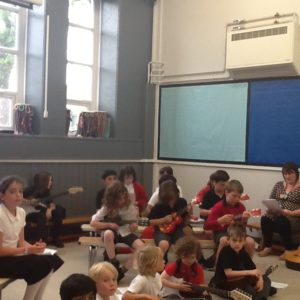
Across the year groups, we have a selection of children who are learning to play the guitar. This group of musicians also demonstrated their skills.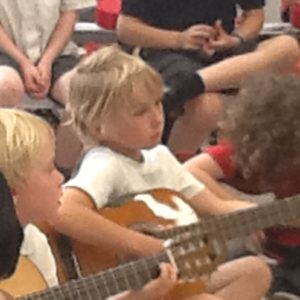
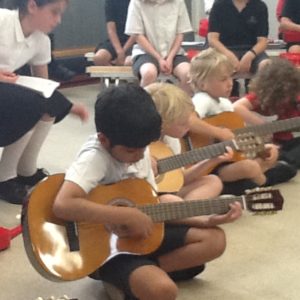
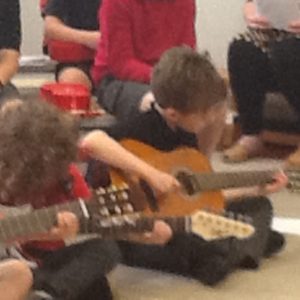
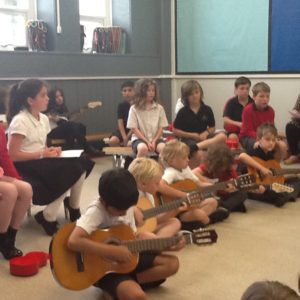
Well done all!
Walk to School Week competition update
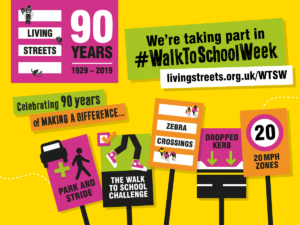
For pupils who are completing the #WalktoSchoolWeek story this week, as school is closed tomorrow, the missing words for Thursday AND Friday can all be found on Friday in the usual locations. Happy Walking!
Remember to bring in your completed sheet on Friday to be entered in the prize draw for four £10 vouchers.
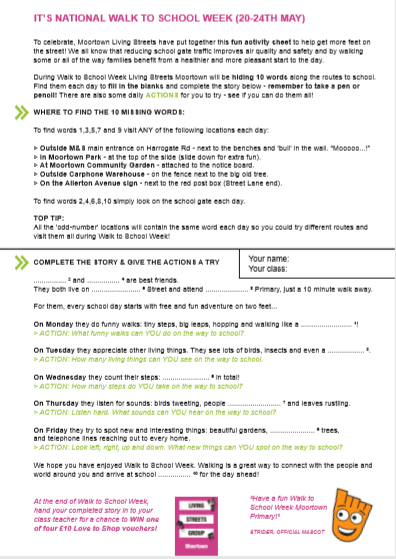
Big Pedal
Our involvement in the recent Sustrans Big Pedal initiative has been recognised in the latest Leeds City Council Influencing Travel Behaviour newsletter.
Thank you to all the schools who took part in The Big Pedal this year. An amazing 2299 schools across the country took part and 36 of them were from Leeds which is brilliant!
Well done to Moortown Primary School who came 38th out of 500 in the small school category!
It’s great to see such positive engagement in these active travel initiatives to ensure families have a healthy and active start to the day. Thank you to Moortown Living Street group for their support with our active travel initiatives.
Living and Learning: MoneySense
Over this week, we are holding MoneySense sessions for each class with support from volunteers from NatWest.
MoneySense is an impartial financial education programme that uses real-life experiences to help young people develop good money habits.
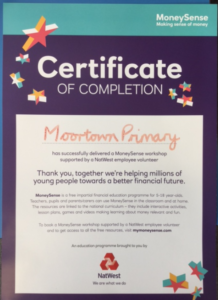
Catherine from NatWest, supported our ‘How we use money’ Year 1, 2 and 3 sessions yesterday and gave some great feedback.
Money Matters themed week – School Savings Club
As it is our Money Matters themed week, we are holding an information and paying in session tomorrow after school for the School Savings Club pupil accounts.

Jordan Francis, from Leeds Credit Union, will be available to give more details and hand out application forms for these pupil accounts. As there is not minimum deposit requirement, it is a great way for your child/children to learn the importance of money. Paying in sessions are held every half term.
As always, if you are unable to attend in person, please hand in any money to be paid in, to the office in a sealed envelope addressed to Mrs Tiffany.
Girls Golf Rocks
Would your child like to give golf a try?
Here’s details of a FREE local project targeting girls golf taking place in the half term break.
